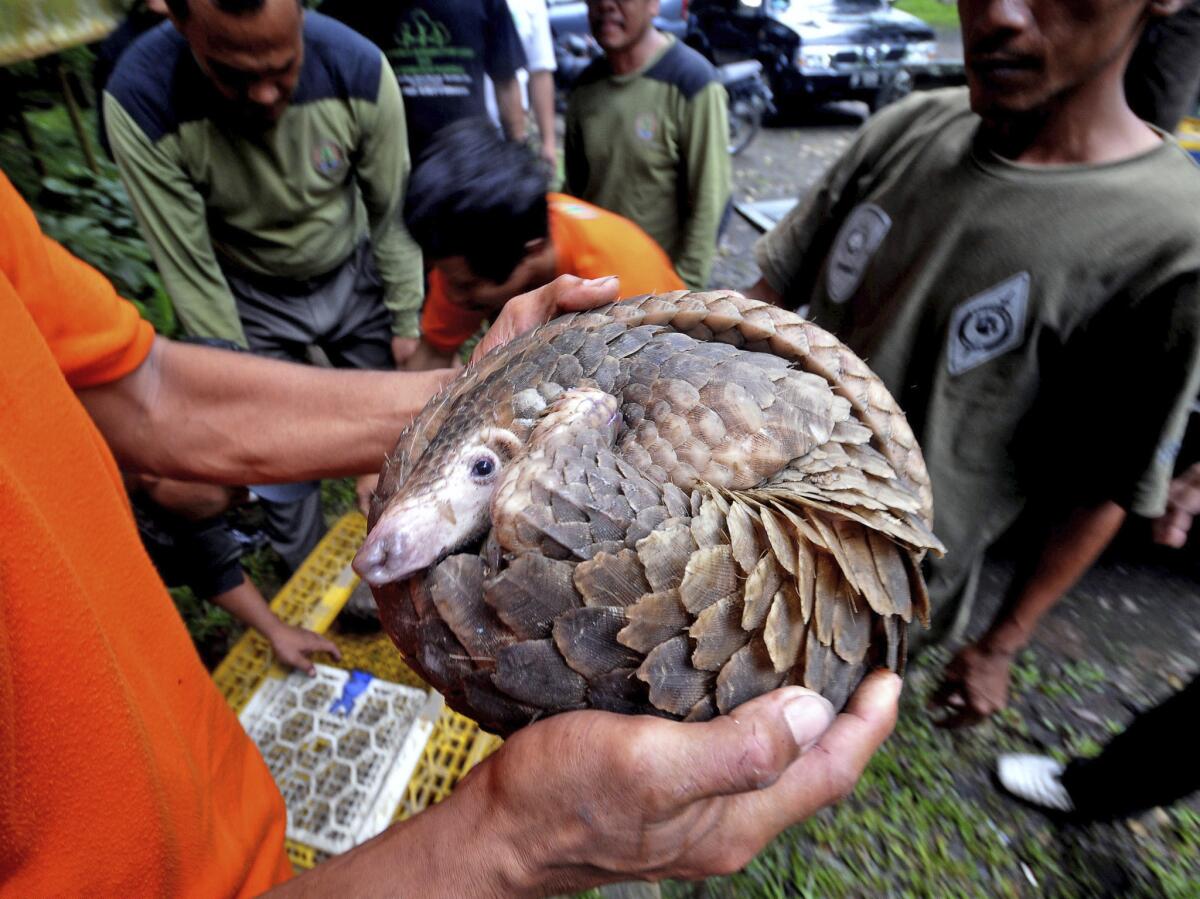Chinese poaching of rare mammal exposed by boating accident

- Share via
A boating accident off the Philippines coast has exposed Chinese poaching of a protected species of scaly anteater, or pangolin, prized in traditional medicine.
A 500-ton Chinese fishing vessel, the Min Long Yu, crashed into a coral reef April 8. When the boat was inspected, authorities found more than 2,000 butchered pangolins rolled up and packed into 400 boxes. It is one of the largest hauls of the species, which is subject to an international trade ban.
Pangolins are long, lizard-like land mammals covered with scales, which make them look like pine cones when they roll themselves up for protection.
The meat of this strange animal is considered a delicacy in southern China, while the scales are thought to have medicinal properties to treat asthma and cancer and to induce lactation in new mothers.
Filipino authorities are holding 12 Chinese members of the ship’s crew on charges of poaching and attempted bribery, and they face further charges of damaging the coral reef, which is in a UNESCO-protected marine sanctuary, Tubbataha Reef. Earlier this year, a U.S. Navy ship got stuck on a coral reef in the same marine park and had to be dismantled.
The incident seems likely to add another element of contention between China and the Philippines, already in dispute over sovereignty of fishing waters.
“It is bad enough that these Chinese have illegally entered our seas, navigated without boat papers and crashed recklessly into a national marine park and World Heritage Site,” Jose Maria Lorenzo Tan, the chief executive of World Wildlife Fund-Philippines, said in a statement. “However, it is simply deplorable that they appear to be posing as fishermen to trade in illegal wildlife.’ ”
The environmental group said it wasn’t sure yet whether the pangolins came from Malaysia or the Philippines.
ALSO:
Pakistani Taliban denies involvement in Boston bomb blasts
Military spending rose in Russia and China in 2012, fell in U.S.
North Korea marks founder’s birthday with flowers, not missiles
More to Read
Sign up for Essential California
The most important California stories and recommendations in your inbox every morning.
You may occasionally receive promotional content from the Los Angeles Times.










